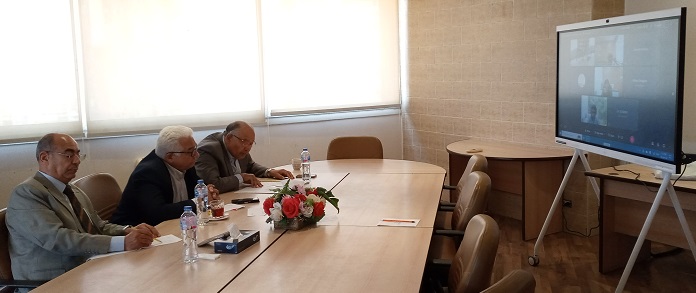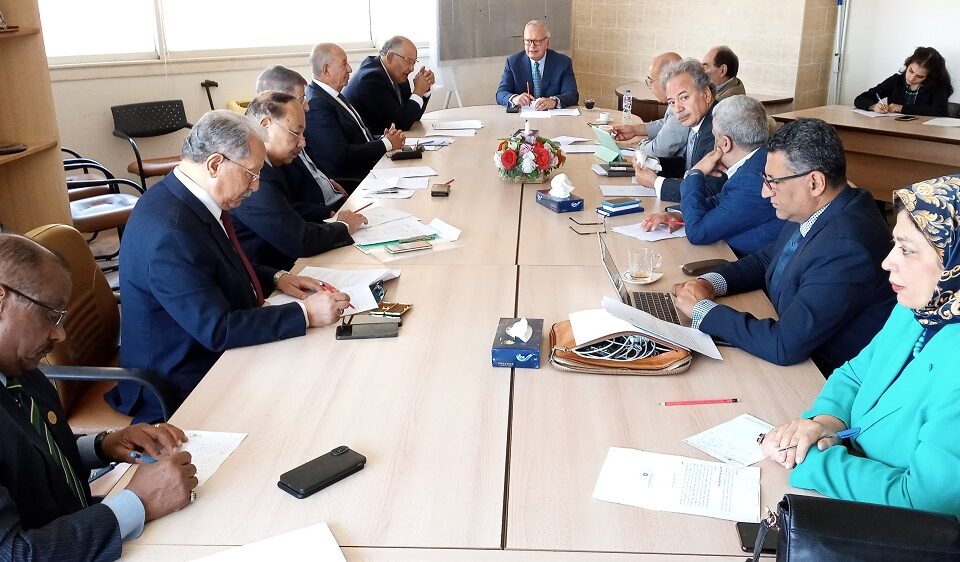Seminar on “UN Secretary-General António Guterres’ vision on the New Agenda For Peace”
March 19, 2023ECFA’s commemoration of the centenary of Dr. Ahmed Esmat Abdel Meguid – Former Egyptian Minister of Foreign Affairs and Secretary-General of the League of Arab States
March 22, 2023
On March 21, 2023, ECFA, in cooperation with the Kemet Boutros Ghali Foundation for Peace and Knowledge, held a seminar entitled “China in a Changing World” at the Egyptian Diplomatic Club, attended by a number of diplomats, experts and researchers. The participants agreed that, in fact, the rise of China, the continuation of this rise, and American concerns that China would take its place as the world’s primary power is the essence of the transformations in Asia and the entire world, which are increasingly shaped by the competition between the United States and China. Each party seeks to maximize its interests and mobilize allies and partners, especially by the United States, to enhance power and influence against the other party’s power and influence, which means further competition and polarization. Hence, states seek to maintain a kind of balance, as much as possible, towards these two superpowers. This requires the ability to maneuver and employ the necessary cards and tools that would create common interests with each of them, thus protecting each party from the potential pressures expected to be exerted by either of them.
Some have pointed out that the strategic competition between the United States and China has two dimensions: a regional dimension and a global one. The regional competition includes each country increasing its intervention capabilities and military options in the East Asia region and beyond. The conflict between the two countries is evident in its regional dimension, especially in the western Pacific Ocean and the sea lanes in the Indo-Pacific region. In this context, there is a widespread belief in the United States that China intends to create an exclusive maritime zone of influence in the South China Sea. Hence the announcement of the Trilateral Security Partnership (Australia-US-United Kingdom AUKUS, announced on September 15, 2021).
As for the competition in its global dimension, it is due to the conviction of the U.S. administrations, since Obama’s until present, that any gains in China’s influence must come at the expense of the United States. Hence Washington’s view of Chinese initiatives, represented mainly by the establishment of the Asian Infrastructure Investment Bank and the Belt and Road Initiative, as a reflection of Beijing’s global ambitions, and an expression that its national interests are in every corner of the world, and that Chinese openness and strategic expansion exceeds defending core Chinese interests. It is noteworthy in this regard that President Xi Jinping’s goals are linked to a diplomatic mentality that is highly sensitive to anything that China considers an attack on its national pride, and that this diplomatic stance, which is called the “Wolf warrior diplomacy,” makes Chinese officials alert to any insult or criticism of China.
Some American writers have argued that the United States’ strategic competition with China is capable of developing to serve as “the governing principle of U.S. economic, foreign, and security policies.” There is also a widespread conviction that Washington is increasingly looking at all of its international relations through “China’s prism”, including its relations with Europe. The Biden administration can be expected to increase pressure on U.S. allies to take a position in the intense China-U.S. conflict, and to join the U.S. in balancing against China by restricting China’s access to advanced technologies and monitoring Chinese foreign investments.






